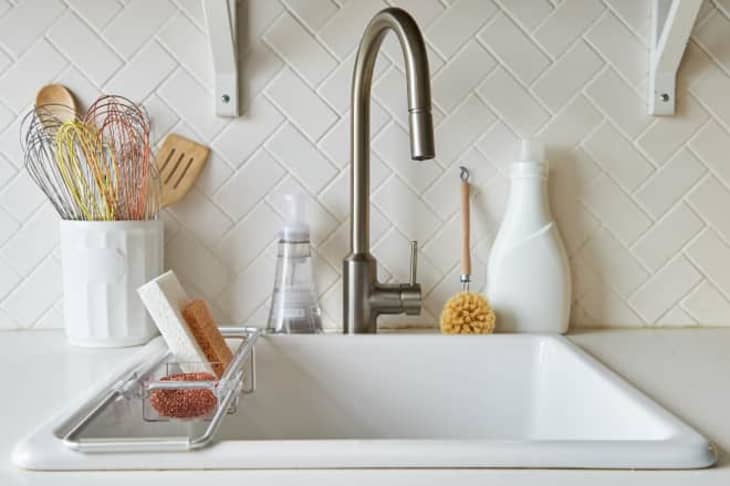3 Telltale Signs the House You’re Buying Has Hard Water Issues

Maybe you know that some people don’t want to live in a house with “hard water.” But what is hard water, anyway? Water hardness is defined by the amount of dissolved mineral content it contains, notably its levels of magnesium and calcium. Just over 85 percent of homes have hard water, according to Whirlpool, so the likelihood that you’ve got some running through your own plumbing is quite high.
Here’s the good news: The World Health Organization says hard water is not a health risk. It’s still quite a nuisance for households, though. If you’ve noticed any or all of the following, you might indeed have hard water:
- Dry skin and hair
- Cloudy glassware
- Dingy clothes or linens
- Soap scum on shower walls and doors
- Malfunctioning appliances due to mineral buildup, including limescale
In addition to clogging the lines of water-powered appliances, hard water lessens the effects of soap when washing dishes and clothes. It also makes it hard to wash the soap away in general, which is why you’ll experience soap scum or dry skin when bathing. You might even notice that your hand soap doesn’t suds up as much as it should, thanks to the high mineral content levels in your water.
“Testing your water is probably the best way to verify the mineral content and determine what can be done to improve it,” says Kurt Hoes, a strategic real estate inspection advisor at Real Estate Bees.
The most common remedy for treating hard water is to install a water softener. This is a type of filtration system that removes calcium and magnesium and replaces them with sodium ions. There are also shower heads that filter out hard water.
How to Scope Out Hard Water at an Open House
I don’t have to tell you that it’s bad form to take a shower or throw in a load of laundry at an open house. But there are still ways of finding out whether hard water is running through the pipes. Here are three warning signs to keep an eye out for:
- Check the faucets. Hoes says the biggest indicator would be white calcium buildup around sink fixtures.
- Glance at the water dispenser. If you see water marks or white crystalized buildup on or near the dispenser, it’s likely a sign of hard water, according to Hoes.
- Look for a ring around the toilet. Nicole Beauchamp, senior global real estate advisor and licensed associate broker with Engel & Völkers in New York, says you should also be on the lookout for rings around the toilet. (If you’ve got them at home, a pumice stone could erase them.) This means that there’s a buildup of minerals in the pipes.
Still, out of all the red flags to be aware of while house hunting, hard water is not a reason to pass on your dream home. It’s understandable that you’d want to look into solutions, though, especially if you value moisturized skin and squeaky-clean dishes.
“At the end of the day, every individual is different and should consider talking to a private drinking water systems contractor to determine their water quality and what can be done to improve it,” says Hoes.